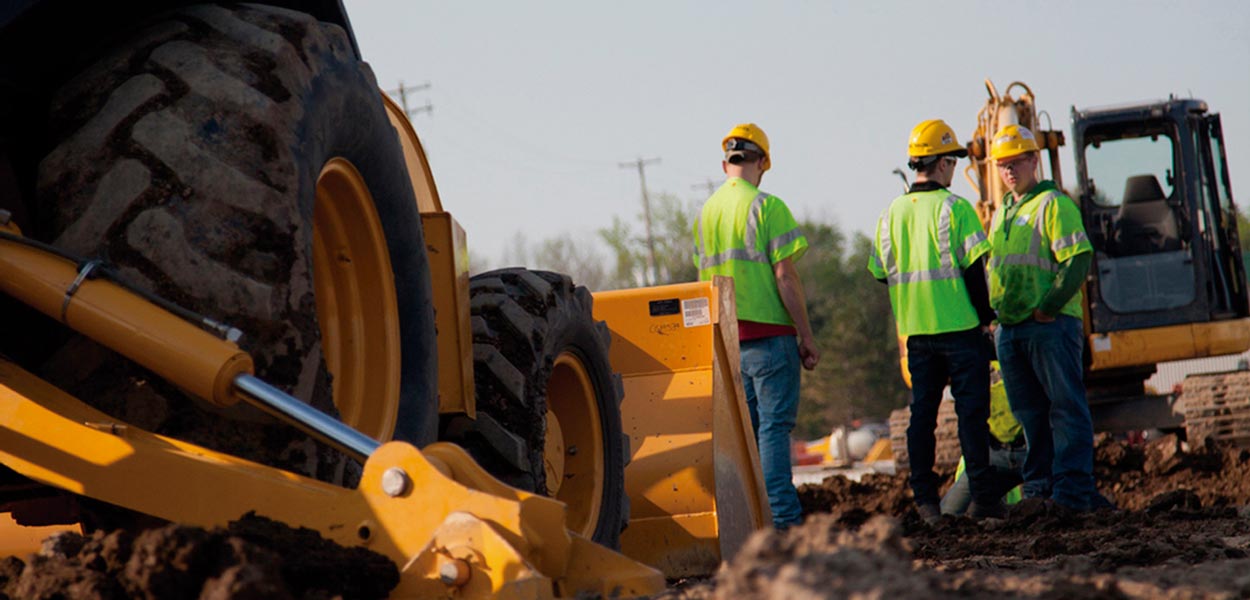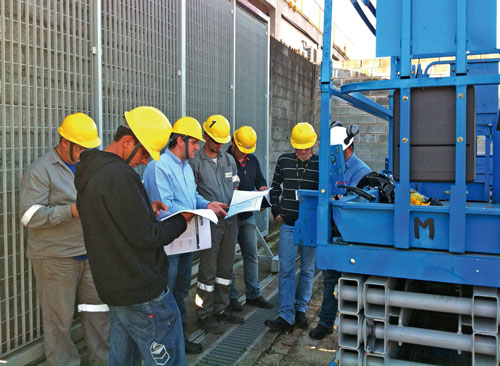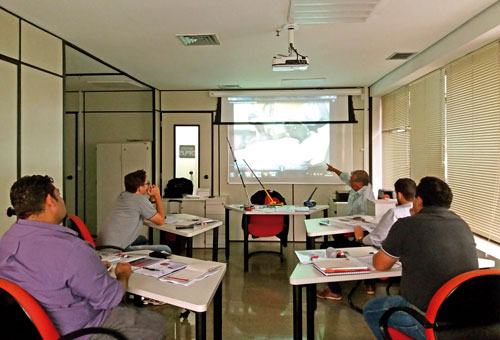TRAINING
The reheating of activity in construction—expected for soon by all people involved—opens opportunities for in-class and remote specialized courses and training

The waves of dismissals that occurred in the construction industry created a lack of skilled operators in contractors, builders, rental companies and other equipment users. In consequence, many fired professional invested in their own business, became businessmen or were involved in other activity. This may obviously generate problems, since we may face more and more a possible deficit of qualified labor trained for operations with machines in different levels, from operation to planning and management.
But this situation also configures an opportunity. The scenario opens space for third-part professionals and consultants that are promising a more comprehensive view of what is needed to be done to increase the efficiency of construction or rental companies. “In addition to offer professional training and qualification, it is necessary a comprehensive analysis of management”, explains Wilson de Mello Jr., director from the consulting company Criando Excelência Operacional Empresarial (CEOE). “During the period of crisis, companies were forced to dismiss competent professionals that were receiving high wages. This is a traumatic process of loss for a corporation since it compromises the quality of their operations. On the other hand, other companies kept people with lower wages but without the appropriate qualification.”

Instituto Opus já formou 6.500 profissionais de 500 empresas em diversos cursos oferecidos nas últimas duas décadas
The paradox is just apparent. In this way of thinking, the current market has a good temporary offer of qualified professionals. But—according to the observations of Mello Jr.—they are being already absorbed in the first retaking months of construction activity, accepting wages below those received when the market was booming. In addition, with the increase of outsourcing, some professionals are also opening individual microbusiness companies and being hired as legal persons.
This fact shows that from now on the market will need to be adapted to this new reality of work relations and reconfiguration of the industry. Considering these points, we may imagine that when new contracts come they will be sliced among medium and low-size contractors. This situation will naturally require higher investments in qualification and training of labor, a prime factor to be considered by those who want to take part successfully in large contracts. The same is occurring with technology.

Mecanização e treinamento podem ajudar a melhorar a cultura de prevenção de acidentes no mercado brasileiro de construção
DEFFICIENCIES
By the way, experts are unanimous in pointing as one of the main bottlenecks still maintained in Brazilian labor the low level of operators’ knowledge related to the machine. This condition turns them unable to extract the whole productivity that is being cruising-speed brought by the continuous increase of new technologies.
Due to the lack of schooling, a large quantity of these professionals just does not absorb completely what the equipment is able to do. They cannot even interpret some basic schematic signals or even to carry out a logical thinking based on messages sent by the electronic system of the equipment. In addition to this human point, there are critical mistakes in the training plans, which many times use wrong standards or inappropriate methodologies of program content, workload and recycling.
Critics are frequent about this subject, and confirmed by Jacques Chovghi Iazdi—skilled instructor of access equipment from the Escola da Movimentação (Motion School). He points that companies contract training programs without establishing previously validation criteria for the instructors, what may put training in risk. “Speaking about aerial platforms, companies just offer acquaintance with the equipment”, warns him. “This internal training is superficial and does not give consistent and accurate information—such as load capacity, operating angle, up and down grade ability and use of telescopic boom.”
According to Iazdi, the Brazilian Market of construction has to improve its culture of accident prevention. To do so—as he emphasizes—the country has to enlarge the mechanization of work fronts in projects or services, as is common in more developed countries. “Many companies spend high values in renting or buying machines, but they invest little in the qualification of professionals”, criticizes him.
In such context, it is complex to assign only to the operators the responsibility of knowledge. Many times they are limited to just absorb information contained in the operating manuals, which are well-written and precise, but insufficient. “The Escola da Movimentação helps organizations to define these criteria using regulating and technical standards establishing technical scope of training, work load for qualification and recycling, among other important points”, ensures him.

Av. Francisco Matarazzo, 404 Cj. 701/703 Água Branca - CEP 05001-000 São Paulo/SP
Telefone (11) 3662-4159
© Sobratema. A reprodução do conteúdo total ou parcial é autorizada, desde que citada a fonte. Política de privacidade












